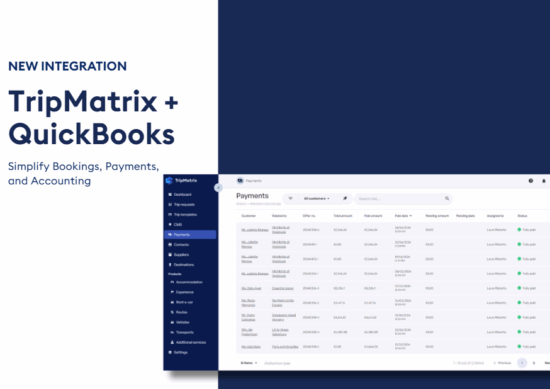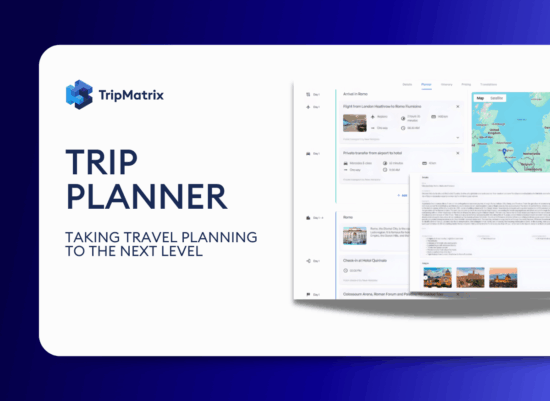Does ChatGPT Make Travel Agents Obsolete?

ChatGPT, the revolutionary AI chatbot, will continue to amaze the world in 2025 with its versatile and exceptional abilities.
From cracking MBA exams to composing research papers, this AI platform has displayed remarkable aptitudes in performing tasks once believed to be only within the realm of human professionals.
But what about planning a vacation? Can ChatGPT be a cost-efficient and reliable alternative to a traditional travel agent?
Let’s delve into the pros and cons of using AI chatbots like ChatGPT and Google Bard versus human travel experts when crafting travel itineraries.
This article will probe into the likely impact of ChatGPT in the travel sector and the future of human travel agents.
What exactly are ChatGPT and Google Bard, and How do they Operate?
ChatGPT and Google Bard are cutting-edge AI language models trained on massive data, allowing them to understand and respond to natural language inputs.
Their advanced capabilities will enable them to be integrated into various applications, including travel planning.
When using ChatGPT or Google Bard for travel planning, you need to input your travel preferences, such as your budget, preferred activities, and travel dates.
They will then analyze this information and generate a customized travel itinerary that fits your needs.
This itinerary can include recommendations for transport, accommodations, activities, and dining options.
A significant problem for AI chatbots like ChatGPT and Bard is their tendency to state incorrect information as fact – with great confidence.
Also, the data might not be up to date.
“Regardless of how fun and fast they are, chatbots often make stuff up, “says Anna Maria Frid, trip designer for RealCroatia travel agency.
She has been a travel agent for 20 years and has hands-on experience using chatbots to generate trip ideas.
“You must be careful not to trust chatbots completely because they are autocompleting language systems and not sentient beings.
Nobody wants to cross the ocean on a full-day flight only to find out that a romantic spot on the itinerary exists only in the binary mode somewhere in the Amazon cloud, but not in the real world,” states Frid.
So, let’s dive into the pros and cons of AI vs Humans in travel planning.
Key Features of ChatGPT and Bard as Travel Planners
Here are some of the fundamental features of ChatGPT as a travel planner that make it a standout tool in the industry:
Pros
- Instant Recommendations: They consider your travel preferences, budget and interests to provide instant tailored recommendations – but only based on how skilled you are at prompt engineering.
- Multi-Destination Planning: You can plan trips to multiple destinations, ensuring a seamless and well-coordinated travel experience.
- Available 24/7: With ChatGPT, you can plan your trip anytime, anywhere in the world. Its 24/7 availability means you can get answers to your travel questions anytime.
Cons
- Lack of personalization: One of the biggest drawbacks of using a chatbot for travel planning is the need for true personalization. Chatbots provide general information and suggestions, but they may only consider someone’s particular travel preferences and needs if they can be super specific about them and are familiar with prompt engineering. This can result in itineraries that don’t meet your expectations or are not tailored to your style of travel.
- Limited knowledge: While chatbots are designed to access vast databases, they may not always have the most up-to-date or comprehensive information available. This can lead to inaccuracies or incomplete information in your itinerary. There is no way to bypass this obstacle with the current level of technology.
- Lack of human connection: Another disadvantage of using a chatbot is the lack of human connection. While chatbots can provide quick answers to questions and generate suggestions, they cannot offer the same personalized service and support that a human travel expert can provide. This can be especially important for travelers looking for a more human touch in their travel planning process.
Is a Human Expert Still Competitive?
While ChatGPT has many benefits as a travel planner, there are still several advantages to working with a human travel agent that AI cannot match. Here are a few:
Pros
- Personalized Attention: A human travel agent can offer you one-on-one attention, taking the time to understand your travel preferences and needs and making recommendations accordingly. This level of personalization is difficult to match with an AI tool.
- Expertise and Knowledge: Travel agents have years of experience, training, and access to a wealth of travel industry resources. They can offer you insider knowledge and expertise and help you plan a trip that exceeds your expectations.
- Access to Exclusive Deals: Travel agents have relationships with suppliers and can often secure exclusive deals and promotions that AI simply can’t access.
- Problem-Solving Skills: No matter how well-planned a trip may be, there are always potential roadblocks that can arise. A travel agent can act as your advocate, helping to resolve any issues that may occur during your trip.
- Peace of Mind: Planning a trip can be stressful, but with a travel agent, you can know that all the details are taken care of. You can relax and enjoy your trip, knowing that everything is under control.
Cons
- Cost: One of the most significant drawbacks of consulting a human travel expert is the time and cost. Travel agents often charge a fee for their services, which can add up, especially for more complex itineraries. And those take time to make.
- Limited availability: Another disadvantage of working with a human travel expert is that they may not always be available when you need them. Travel agents typically have set business hours and may not be available outside of those hours, making it difficult to get answers to questions or make changes to your itinerary in a timely manner.
- Less convenience: Consulting a human travel expert can also be less convenient than using a chatbot. You may need to schedule appointments, wait for business hours, or travel to a physical location to meet with your travel agent. This can be time-consuming and make it more difficult to plan your itinerary on your schedule.
What Can a Travel Agent Do to Remain Competitive?
Advanced chatbots, such as OpenAI’s GPT-3 and Google Bard, have proven they can provide quick and easy access to information and suggestions.
Still, they offer a lower level of personalized service and expertise than a human travel expert can provide. “Sure, you will get a list of “best hotels in London” in a second; you can’t beat its speed.
But, ChatGPT doesn’t know what is in your head and what is the best hotel from your current mood and viewpoint!” illustrates Anna Maria Frid.
She recommends that fellow travel agents use proven strategies and tech solutions to remove repetitive tasks and focus on the customer experience to remain competitive.
- Utilize Technology to Enhance Customer Experience: While AI chatbots may seem a threat, travel agents can use technology platforms such as TripMatrix to automate tasks from booking and ticketing to accounting and reporting. Agents can allocate more time and resources towards higher-value activities, such as building relationships with clients and securing new business.
- Effective Communication with Clients: Fast and reliable communication is key to maintaining strong relationships with clients and ensuring their satisfaction. With the right software, travel agencies can easily communicate with clients via email, chat, and other channels from one place, providing prompt responses to their questions and concerns. This not only improves the customer experience but also helps to reduce frustration and increase loyalty.
- Empathy and Understanding: A human travel expert can understand his customer’s concerns, answer questions, and offer support and advice. They can offer empathy and a human touch, which can be especially important in complex or stressful travel situations.
- Flexibility: With a human travel expert, travelers can change plans and adjust their itinerary on the fly. If an agent has a high-end travel agency platform such as TripMatrix, he has enough time to make changes to reservations and travel arrangements quickly and efficiently.
- Real-Time Data Tracking and Reporting: This feature provides agencies with up-to-date information on their business performance, including pricing, sales, profits, and customer trends. This information can then be used to make informed business decisions, adjust strategies, and optimize operations.
Stay Current with Industry Trends:
The travel industry is constantly evolving, and travel agents must stay current with industry trends to remain competitive.
This can include keeping up with changes in regulations, travel trends, and new destinations.
They should be included in automated terms and conditions on your travel agency software platform.
Interested to see how
TripMatrix can supercharge your
travel business?
Request a Demo
Published on: February 24, 2023




